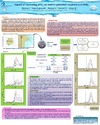Identificador persistente para citar o vincular este elemento:
https://accedacris.ulpgc.es/jspui/handle/10553/15572
| Campo DC | Valor | idioma |
|---|---|---|
| dc.contributor.author | Martínez, Ico | en_US |
| dc.contributor.author | Tames-Espinosa, Mayte | en_US |
| dc.contributor.author | Riebesell, Ulf | en_US |
| dc.contributor.author | Packard, Theodore T. | en_US |
| dc.contributor.author | Gómez, May | en_US |
| dc.date.accessioned | 2016-02-01T10:07:32Z | - |
| dc.date.accessioned | 2018-06-15T09:22:01Z | - |
| dc.date.available | 2016-02-01T10:07:32Z | - |
| dc.date.available | 2018-06-15T09:22:01Z | - |
| dc.date.issued | 2016 | en_US |
| dc.identifier.uri | https://accedacris.ulpgc.es/handle/10553/15572 | - |
| dc.description.abstract | Due to the increasing atmospheric CO2, several on-going research programs, including the German-led KOSMOS GC14 experiment, are evaluating the impact of acidification on marine organisms, intent to predict their future. In the KOSMOS GC14 mesocosm experiment we assessed the effect of different CO2 concentrations on metabolism in microplankton (0.7-50µm size) and in biogenic particles harvested by sediment traps. | en_US |
| dc.description.abstract | Preliminary observations about the effect of the different pCO2 treatments on potential respiratory activity show that the time-courses of all measured parameters were similar between treatments, ranging from 400 to 2000 μatm. In microplankton time-courses the maximum values reached for potential respiration and biomass occurred in most acidified mesocosm, and in 1000 μatm treatment, it occurred for potential respiratory CO2 production. On other hand, maximum values for sediment traps parameters occurred in different pCO2 treatments. All the parameters reached their highest values after the Chl a peak. In the sediment traps this values appeared with a lag of 13 days. | en_US |
| dc.language | eng | en_US |
| dc.source | CECOMA 2016 | en_US |
| dc.subject | 251001 Oceanografía biológica | en_US |
| dc.subject.other | Electron transport system | en_US |
| dc.subject.other | Isocitrate dehydrogenase | en_US |
| dc.subject.other | Ocean acidification | en_US |
| dc.subject.other | Sediment traps | en_US |
| dc.subject.other | Microplankton | en_US |
| dc.title | Impact of increasing pCO2 on marine potential respiratory activity | en_US |
| dc.type | info:eu-repo/semantics/conferenceobject | en_US |
| dc.type | ConferenceObject | en_US |
| dc.identifier.absysnet | 719132 | - |
| dc.investigacion | Ciencias | en_US |
| dc.project.reference | CTM2012-32729-MAR | - |
| dc.rights.accessrights | info:eu-repo/semantics/openAccess | es |
| dc.type2 | Póster de congresos | en_US |
| dc.identifier.ulpgc | Sí | es |
| item.fulltext | Con texto completo | - |
| item.grantfulltext | open | - |
| crisitem.author.dept | GIR ECOAQUA: Ecofisiología de Organismos Marinos | - |
| crisitem.author.dept | IU de Investigación en Acuicultura Sostenible y Ecosistemas Marinos (IU-Ecoaqua) | - |
| crisitem.author.dept | GIR ECOAQUA: Ecofisiología de Organismos Marinos | - |
| crisitem.author.dept | IU de Investigación en Acuicultura Sostenible y Ecosistemas Marinos (IU-Ecoaqua) | - |
| crisitem.author.dept | GIR ECOAQUA: Ecofisiología de Organismos Marinos | - |
| crisitem.author.dept | IU de Investigación en Acuicultura Sostenible y Ecosistemas Marinos (IU-Ecoaqua) | - |
| crisitem.author.dept | Departamento de Biología | - |
| crisitem.author.orcid | 0000-0002-7676-2066 | - |
| crisitem.author.orcid | 0000-0003-0607-5321 | - |
| crisitem.author.orcid | 0000-0002-5880-1199 | - |
| crisitem.author.orcid | 0000-0002-7396-6493 | - |
| crisitem.author.parentorg | IU de Investigación en Acuicultura Sostenible y Ecosistemas Marinos (IU-Ecoaqua) | - |
| crisitem.author.parentorg | IU de Investigación en Acuicultura Sostenible y Ecosistemas Marinos (IU-Ecoaqua) | - |
| crisitem.author.parentorg | IU de Investigación en Acuicultura Sostenible y Ecosistemas Marinos (IU-Ecoaqua) | - |
| crisitem.author.fullName | Martínez Sánchez, Ico | - |
| crisitem.author.fullName | Tames Espinosa, Maria Teresa | - |
| crisitem.author.fullName | Packard, Theodore Train | - |
| crisitem.author.fullName | Gómez Cabrera, María Milagrosa | - |
| Colección: | Póster de congreso | |
Visitas
48
actualizado el 10-ene-2026
Descargas
20
actualizado el 10-ene-2026
Google ScholarTM
Verifica
Comparte
Exporta metadatos
Este elemento está sujeto a una licencia Licencia Creative Commons

